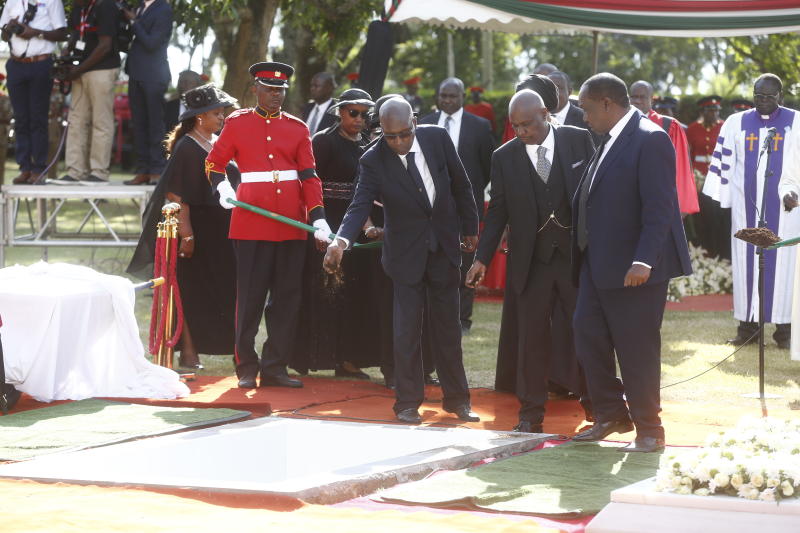
Kenya’s second and longest-serving President Daniel Toroitich arap Moi was buried yesterday at his Kabarak home in a ceremony that brought to an end eight days of national mourning. It drew the curtains on an era dominated by a man whose shoes subsequent successors have found almost impossible to fill.
The elaborate ceremony started with the president’s body being moved from Lee Funeral Home to Wilson Airport in Nairobi, and then onwards by a military helicopter to Kabarak University in Nakuru County for a requiem mass, and finally to his home where he was buried next to Lena, his wife.